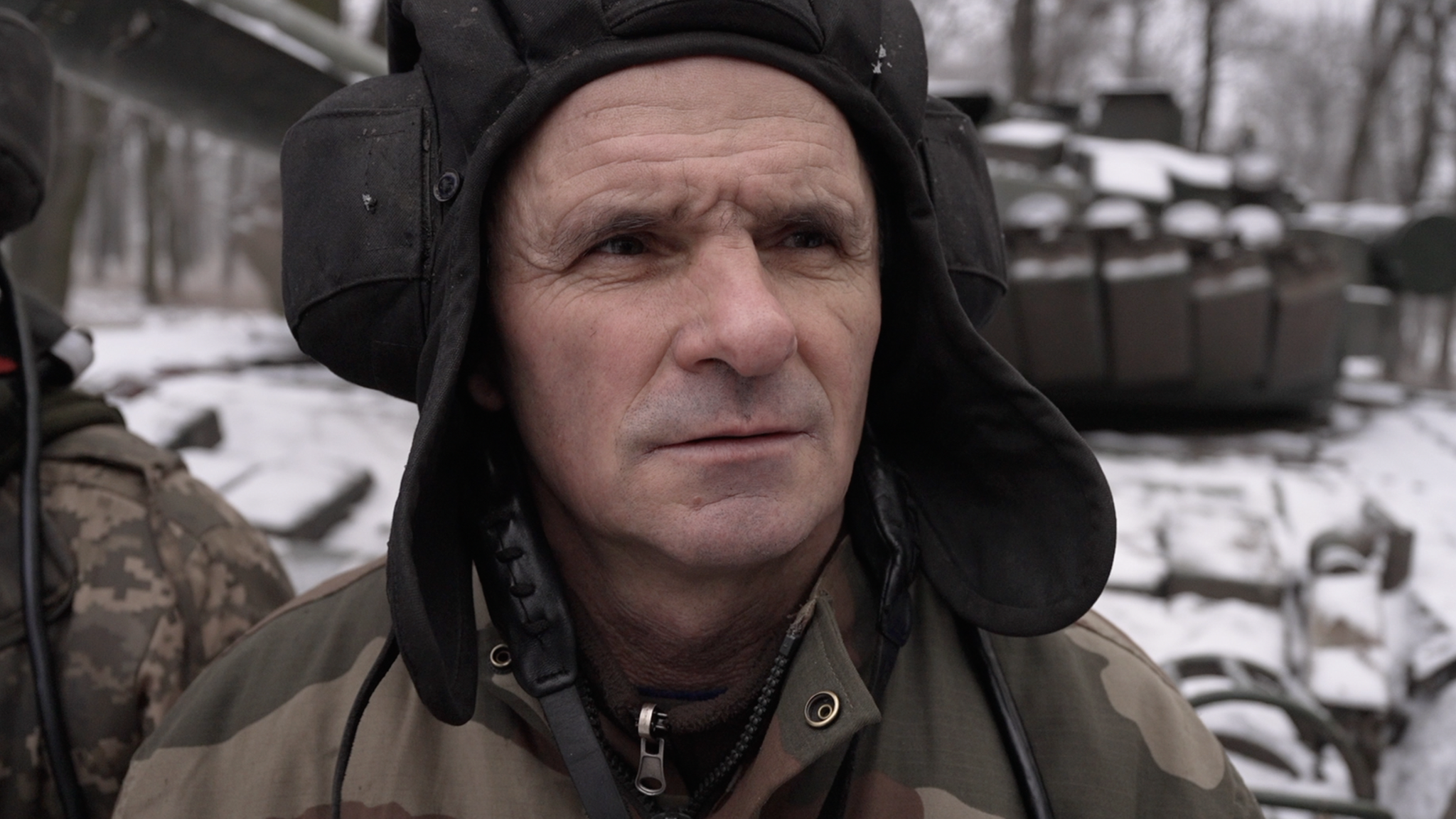Ukraine war: Give us tanks, says Zelensky, as Western allies meet
- Published
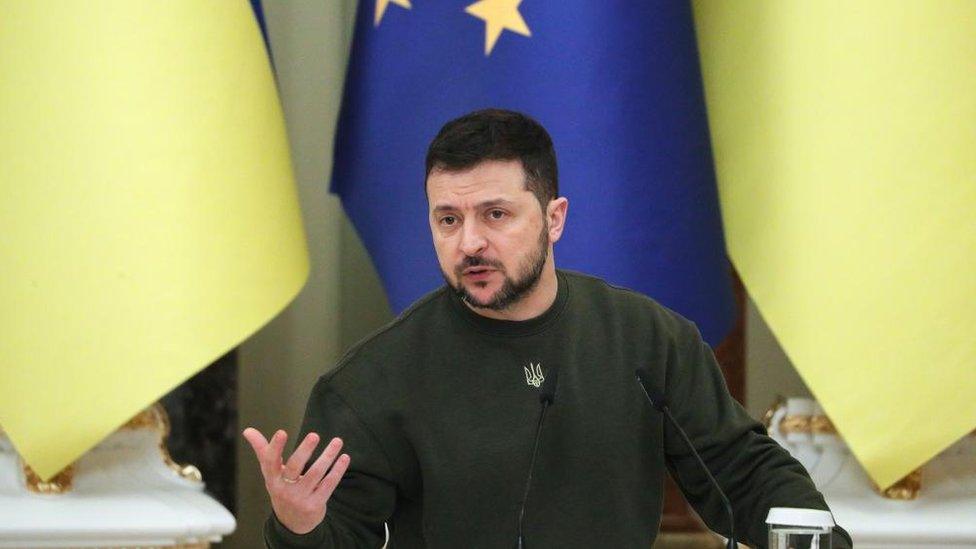
President Zelensky told ARD television that Ukraine needed the Leopard tanks for self-defence
Ukrainian President Volodymr Zelensky has made a direct appeal for tanks at crunch talks involving dozens of Western allies in southern Germany.
The US and European nations have already promised more weapons.
But Mr Zelensky told defence ministers at Ramstein airbase: "Hundreds of thank yous are not hundreds of tanks."
Germany had faced growing pressure to send its Leopard 2 tanks to Ukraine, but at the end of Friday's meeting had not yet committed to their supply.
The nation was also under pressure to allow other countries to provide Ukraine with their own Leopard tanks.
Under German law, the government in Berlin would have to give its permission before countries such as Poland or Finland could commit to re-exporting them.
Speaking after the meeting, Poland's defence minister Mariusz Blaszczak said he was hopeful building a coalition to support Ukraine would end "in success".
Germany's new defence minister, Boris Pistorius, had earlier told reporters at Ramstein: "None of us can say today when there will be a decision for Leopard tanks and what the decision may look like."
Defence colleagues from more than 50 countries gathered at the airbase on Friday, a day after several nations pledged more equipment to help Ukraine fend off further Russia campaigns. US Defence Secretary Lloyd Austin told them it was time to "dig deeper".
Almost 11 months into Russia's war in Ukraine, Nato military figures believe Moscow is planning a renewed spring offensive with troop numbers bolstered by a partial mobilisation since the end of September.
Western officials see a potential "window of opportunity" in the coming weeks for Ukraine to push Russian forces back. They say Moscow is running short of ammunition and trained troops - despite efforts to replenish stocks and mobilise additional forces.
For its part, Russia has warned of increasing Nato involvement, direct as well as indirect, in the conflict. Kremlin spokesman Dmitry Peskov said on Friday that sending tanks would not change the course of the conflict, but would "create more problems for Ukraine and the Ukrainian people".
The UK has already announced it will send 14 Challenger 2 battle tanks. But Kyiv wants more tanks and UK Defence Secretary Ben Wallace said he hoped that the 50 allies would "all hear the message that unlocking the tank is part of 2023".
Germany's Leopard tanks are key to that equation. They are in more plentiful supply than the British tank, and are operated by more than a dozen other nations.
Ahead of the Ramstein meeting Mr Zelensky criticised Germany's hesitant attitude to sending tanks, assuring Berlin that the Leopards would only be used in self-defence and not go through Russia. "If you have Leopard [tanks], then give them to us," he told German public TV.
Polish deputy foreign minister Pawel Jablonski indicated on Friday that Warsaw might be prepared to provide Ukraine with Leopards regardless of Berlin's views. "We'll see. I think if there is strong resistance, we'll be ready to take even such non-standard action. But let's not anticipate the facts," he told Polish radio.
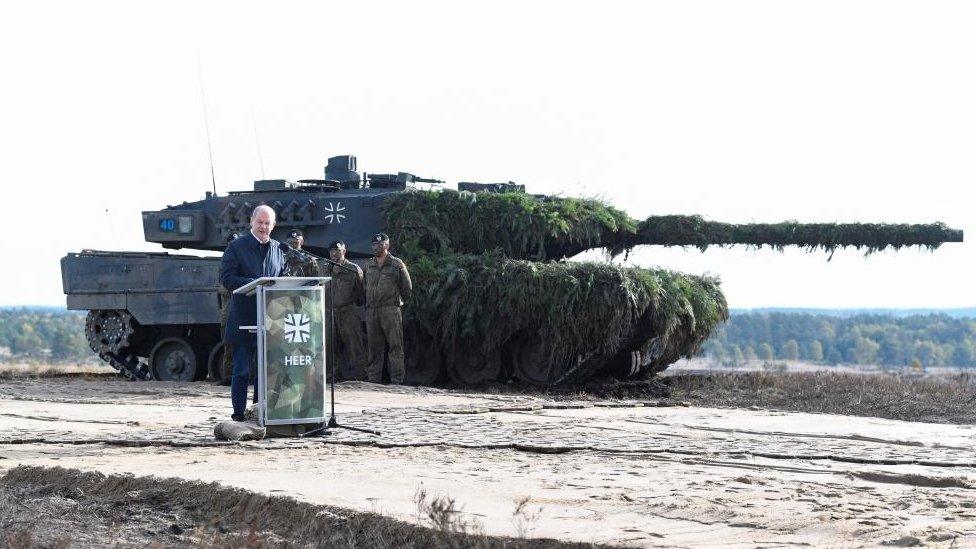
German Chancellor Olaf Scholz is under pressure to allow Kyiv a supply of the Leopard 2 tank - pictured here last year
Berlin was reported this week to have made a decision on the Leopard conditional on the US agreeing to send Abrams tanks, which it is not intending to do. The defence minister denied Germany was blocking deliveries of the tank unilaterally and said that when a decision was made he wanted to be able to move fast.
"That's why this morning I told my ministry to make an inventory of the different types of Leopard tanks we have within our military but also within the industry."
There are fears of escalation in Berlin and of going it alone. Until recently, Germany refused requests to send a Patriot air defence battery, but it relented as soon as the US did the same. On tanks too, Berlin would like to see the US take the lead.
Ben Wallace has rejected talk of escalation. Germany along with the US and UK, he argued, had already supplied artillery systems, like Himars, with a much longer range.
Mr Zelensky has repeatedly taken aim at Berlin's perceived hesitancy and on Thursday criticised suggestions that the US and Germany were only planning to commit vehicles if the other nation did the same.
Retired US Army general David Petraeus said there was "legitimate reluctance" in Washington on the issue of sending Abrams tanks because they were difficult to maintain and had a jet turbine.
He told the BBC it was "imperative" that any Western tank donations were made "early enough, so [Ukrainian soldiers] can actually train on them".
On Thursday, Western nations pledged to send more vehicles, artillery and munitions to bolster the Ukrainian war effort.
The US committed a new package worth $2.5bn (£2bn), saying this took its spend on Ukrainian support to $26.7bn since last February's full-scale invasion by Russia.
Tanks were not included in the offer, but the Pentagon did promise an extra 59 Bradley armoured vehicles, 90 Stryker personnel carriers and Avenger air defence systems, among other provisions.
The announcement came after nine European nations promised more support of their own following a meeting in Estonia. This included:
UK - 600 Brimstone missiles
Denmark - 19 French-made Caesar self-propelled howitzers (cannon)
Estonia - howitzers, ammunition, support vehicles and anti-tank grenade launchers
Latvia - Stinger air-defence systems, two helicopters, and drones
Lithuania - anti-aircraft guns and two helicopters
Poland - S-60 anti-aircraft guns with 70,000 pieces of ammunition
Czech Republic - produce further large calibre ammunition, howitzers and APCs
Netherlands - support expected to be detailed on Friday
Related topics
- Published20 January 2023
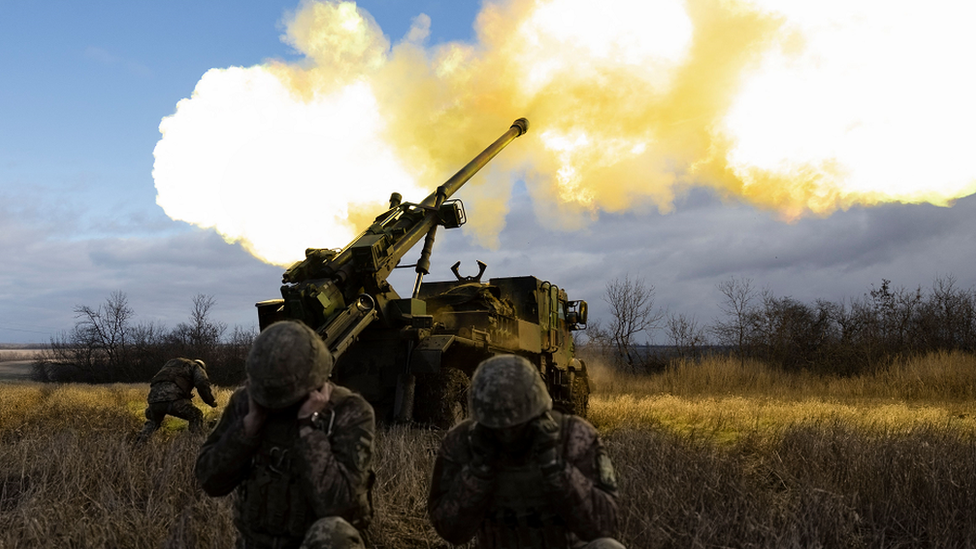
- Published19 January 2023
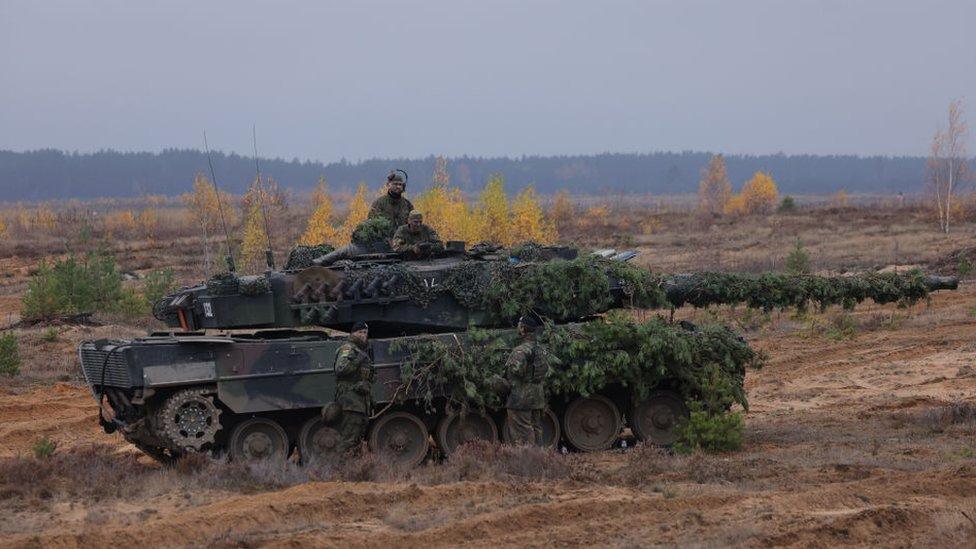
- Published17 January 2023
